Continuing the "What If: Movies ReImagined for Another Time and Place universe" (the previous volumes (1-6) can be found in my Behance portfolio), Volume 7 follows the same formula as seen before: taking movies of the present (or within the "contemporary" setting) and imagining what they would have looked like if made in another era, delving into a decade of yesterday, whether it was an 80s blockbuster, a 70s sleeper, a 60s foreign film, or a golden age classic. Have fun!
Do not ask for digital files; they are not for sale.
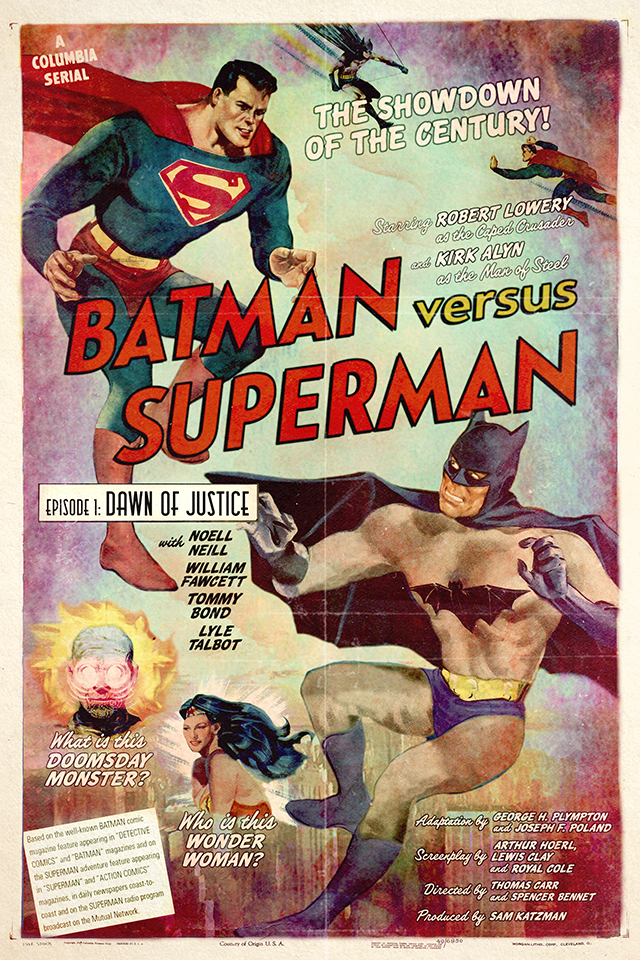
"Batman Vs. Superman" (1949), directed by Thomas Carr and Spencer Bennet; starring Robert Lowery and Kirk Alyn. Appearing in their own serial movies, it was bound to happen that Batman and Superman would appear together on the same screen. In this adventure, the two heroes clash against each other but then join forces to take on a greater threat and encounter another hero.
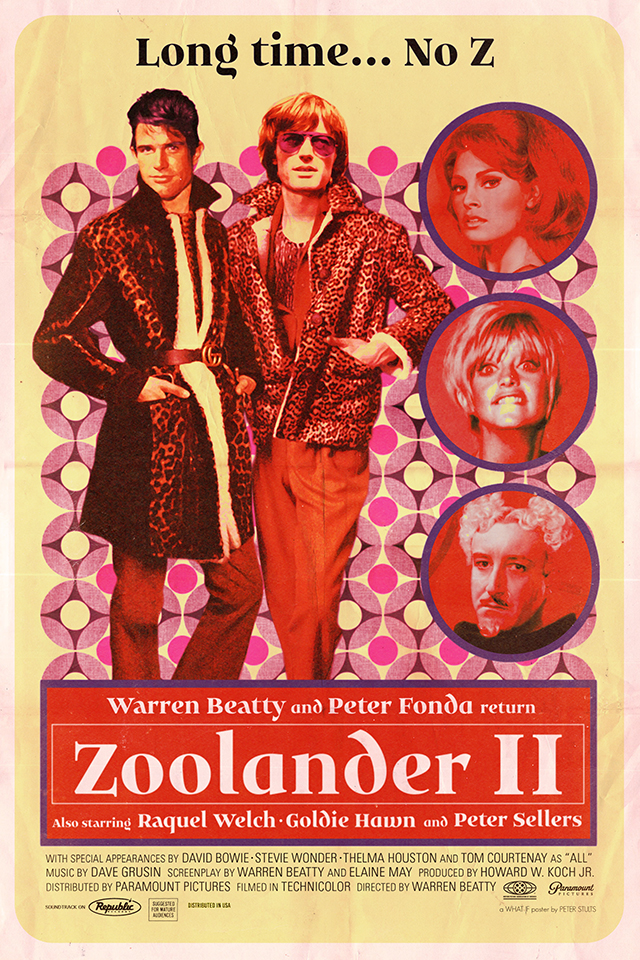
"Zoolander 2" (1973), directed by Warren Beatty; starring Warren Beatty, Peter Fonda, Raquel Welch, Goldie Hawn and Peter Sellers. This follow up to the 1960s cult comedy brings Beatty and Fonda back together to take on Sellers' Mugatu and Hawn's Alexanya Atoz.
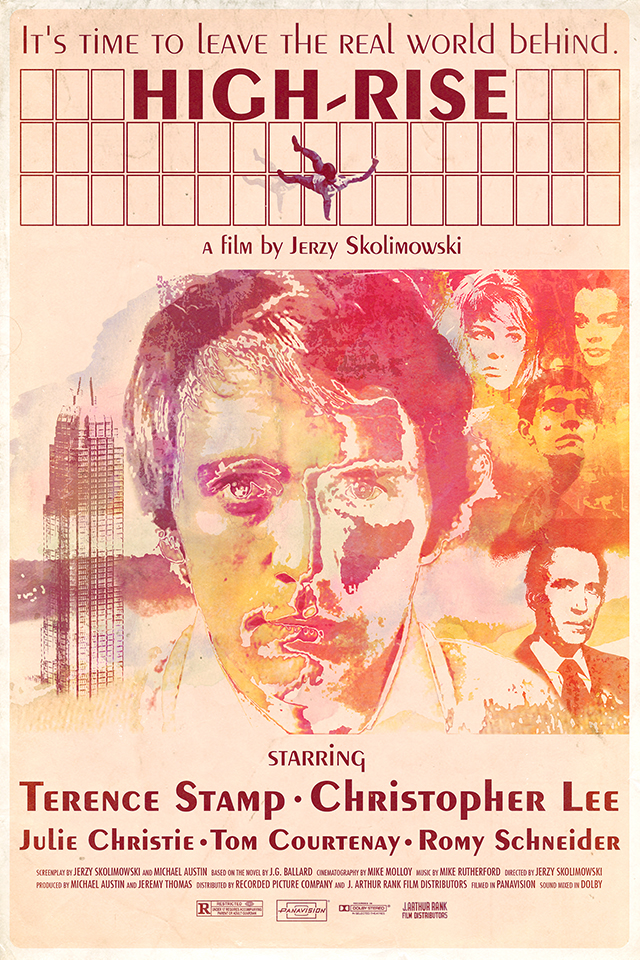
"High-Rise" (1976), directed by Jerzy Skolimowski; starring Terence Stamp, Christopher Lee, Julie Christie, Tom Courtenay and Romy Schneider. After completing "Deep End" and "King, Queen, Knave," director Skolimowski chose to take on the work of JG Ballard by adapting his book "High Rise" (with Michael Austin co-writing).
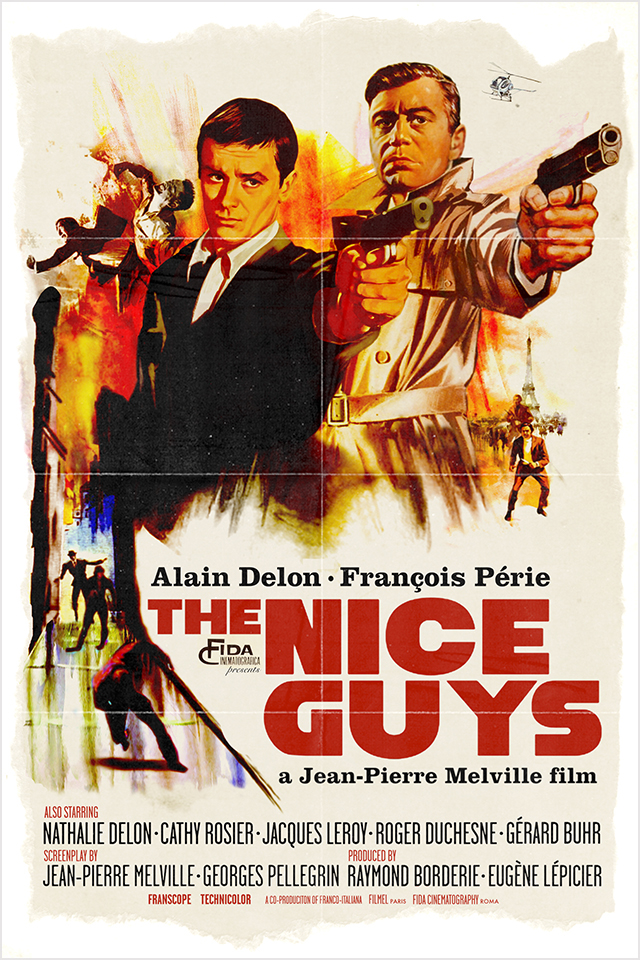
"The Nice Guys" (1968), directed by Jean-Pierre Melville; starring Alain Delon and Francois Perie. Continuing to work with regulars like Delon, Melville created a slightly more comedic film but still maintaining the tone and feel seen in what film historians called "polar cinema" in French filmmaking.
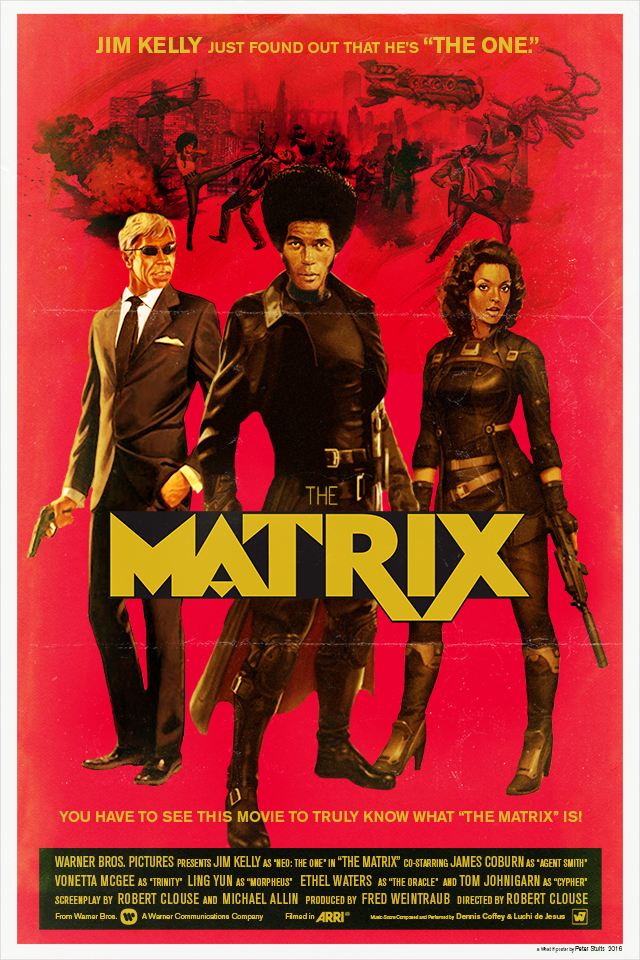
"The Matrix" (1975), directed by Robert Clouse; starring Jim Kelly, James Coburn, Vonetta McGee, Ling Yun, Ethel Waters and Thom Johnigarn. Clouse re-teams up with Kelly, creating a martial arts action film also fused with science fiction and philosophy. Originally not a success in the box office, but years later, film classes are continuing to analyze the various layers in this 70s sci-fi blaxploitation movie.
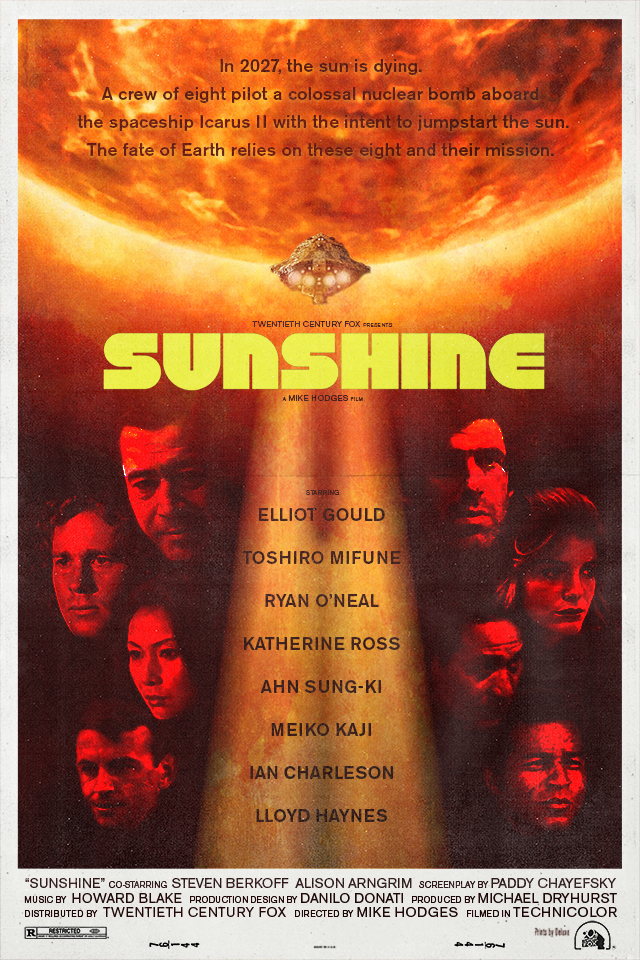
"Sunshine" (1977), directed by Mike Hodges; starring Elliot Gould, Toshiro Mifune, Ryan O'Neal, Katherine Ross, Ahn Sung-Ki, Meiko Kaji, Ian Charleson and Lloyd Haynes. Tapping into genres like disaster films, 1970s gritty stories and dark sci-fi, Hodges and screenwriter Paddy Chayefsky created a claustrophobic and intense plot about humans taking on a modern-day Icarus tale.
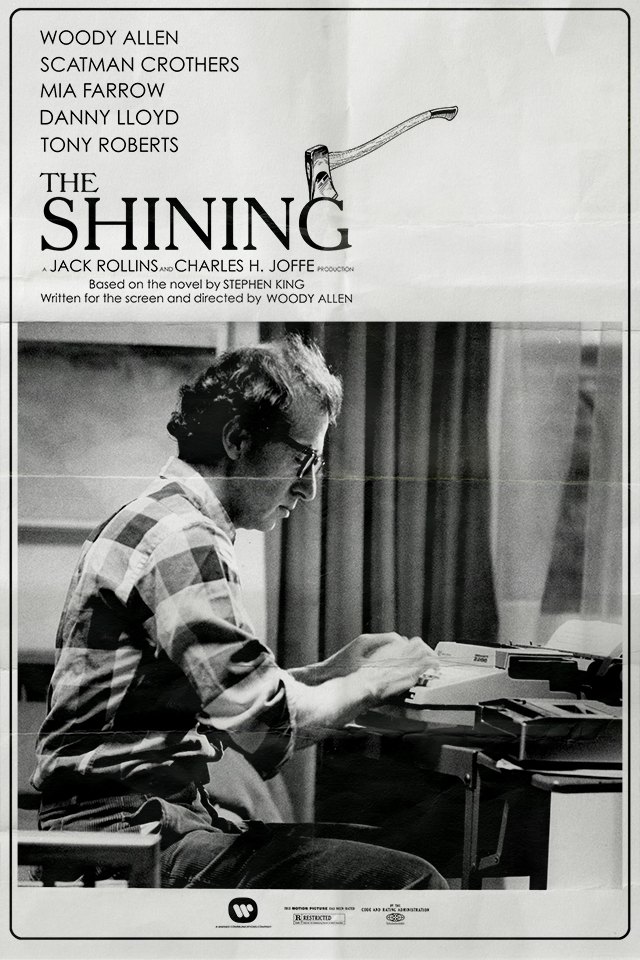
"The Shining" (1981), directed by Woody Allen; starring Woody Allen, Scatman Crothers, Mia Farrow, Danny Lloyd and Tony Roberts. Originally to be made by Stanley Kubrick, the production came undone and later was handed to Woody Allen. Taking the grim haunted house story and elevating it to a light-hearted but black-comedy, Allen made Stephen King's story his own.
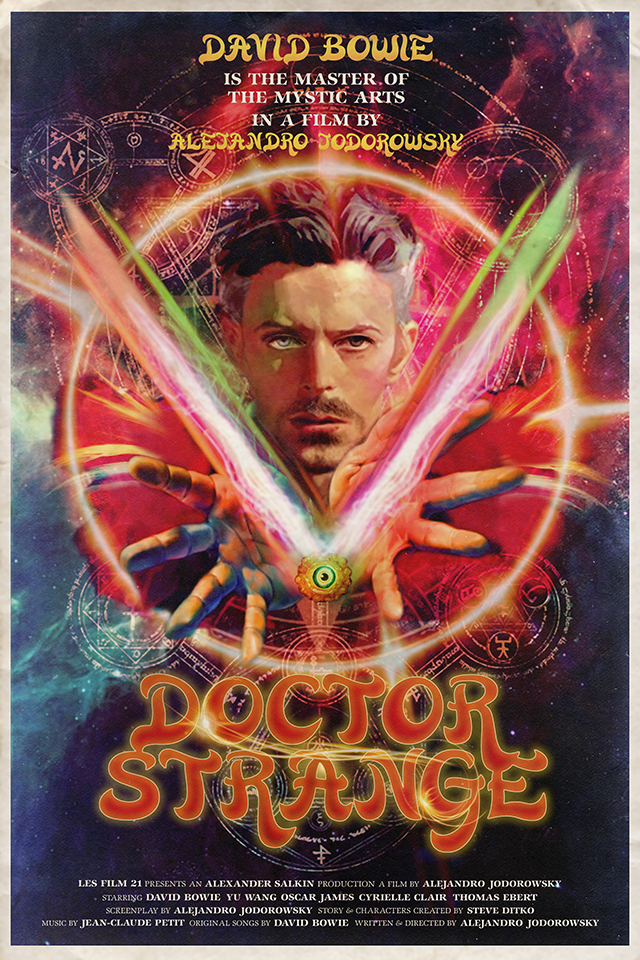
"Doctor Strange" (1978), directed by Alejandro Jodorowsky; starring David Bowie, Yu Wang, Oscar James, Cyrielle Clair and Thomas Ebert. After the television movie "Dr. Strange" did not follow through as ongoing series, as seen with The Incredible Hulk and The Amazing Spider-Man, a script floated around of a more cinematic version of Doctor Strange; years gone by since his last film, Jodorowsky got his hands on the script and made it his own; once done he knew only one person could play the sorcerer supreme: David Bowie.
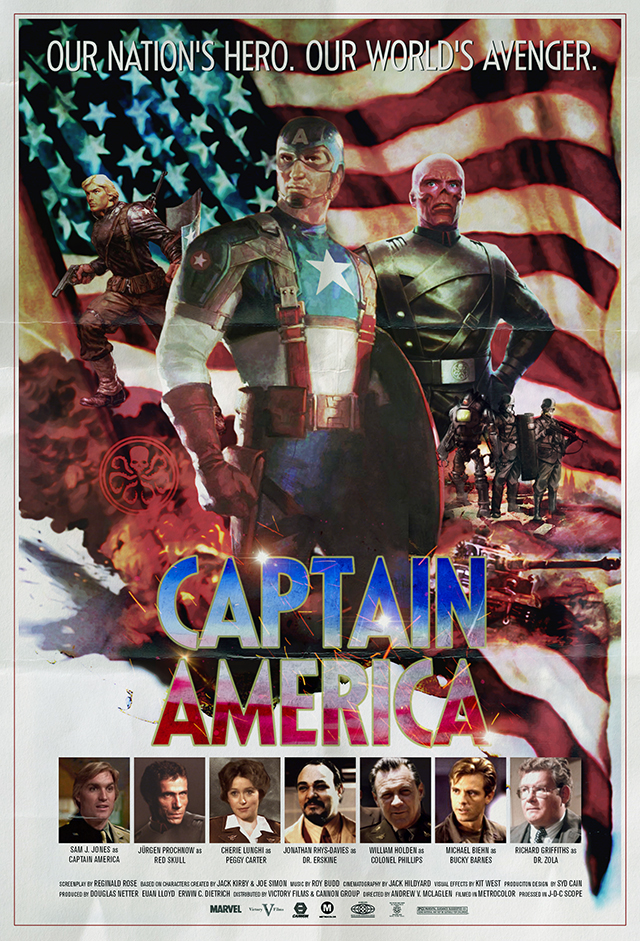
"Captain America" (1980), directed by Andrew V. McLaglen; starring Sam J. Jones, Jurgen Prochnow, Cherie Lunghi, Jonathan Rhys-Davies, William Holden, Michael Biehn and Richard Griffiths. The beginning trend of Marvel movies in the 1980s took notice once Captain America hit theaters; Jodorowsky's "Doctor Strange" had only hit local art-house theaters, two years prior, but everyone knew about the Captain. The sequel was signed off even before the first one was officially released.
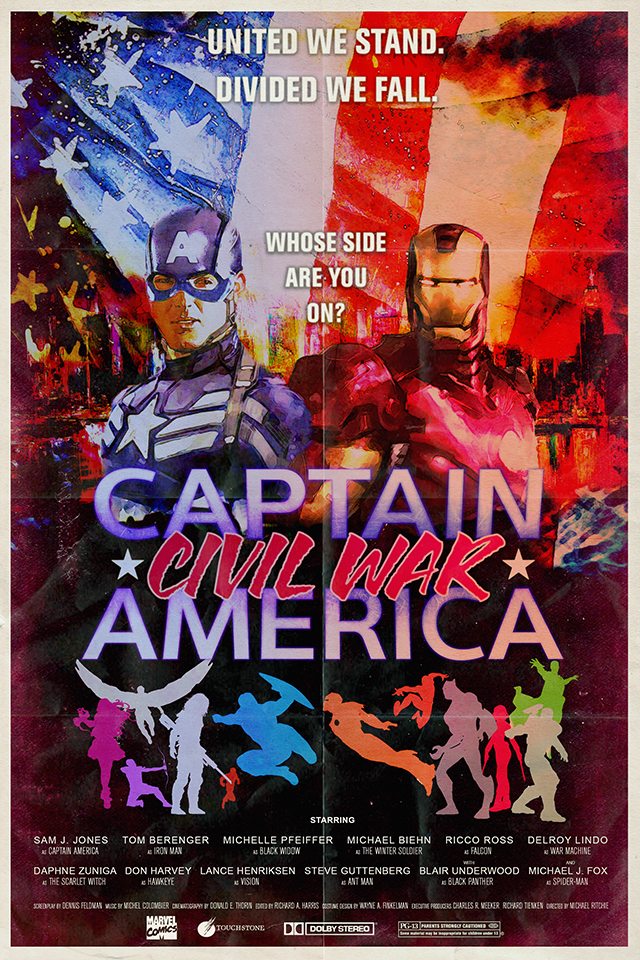
"Captain America: Civil War" (1988), directed by Michael Ritchie; starring Sam J. Jones, Tom Berenger, Michelle Pfeiffer, Michael Biehn, Ricco Ross, Delroy Lindo, Daphne Zuniga, Don Harvey, Lance Henriksen, Steve Guttenberg, Blair Underwood and Michael J. Fox. At this point, movie-goers knew that Marvel movies were the norm now. Summer of 1988, after having two Captain America films, two Thor films, three Iron Man films, and an Avengers film, it was time to bring it all back again and introduce new characters like Spider Man and the Black Panther.
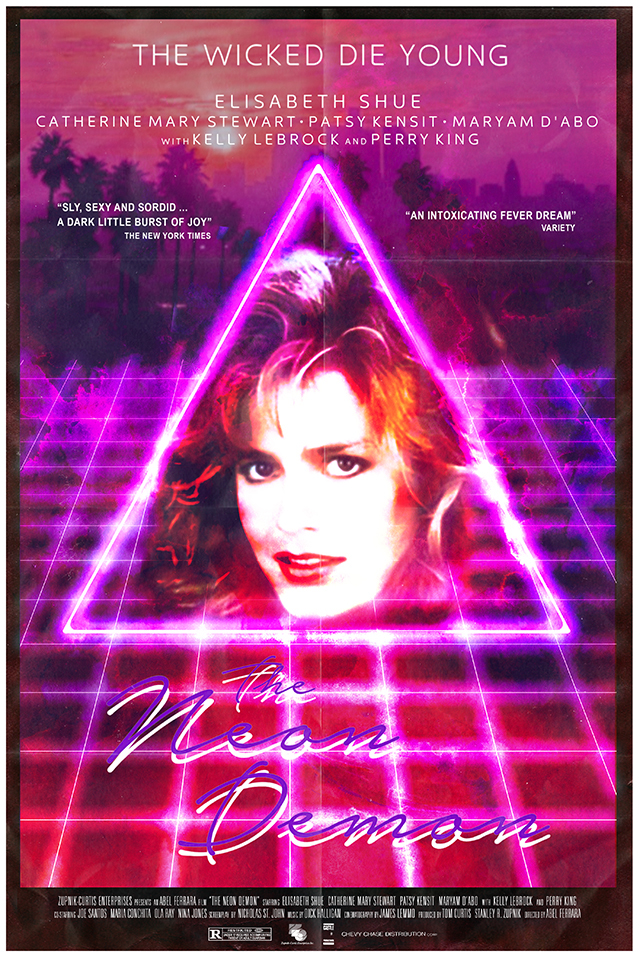
"The Neon Demon" (1985), directed by Abel Ferrara; starring Elisabeth Shue, Catherine Mary Stewart, Patsy Kensit, Maryam D'Abo, Kelly Lebrock and Perry King. Ferrara took on a change of scenery with "The Neon Demon" by having it all take place in Los Angeles, instead of the usual dark sides of New York City. Critics had thought he gone soft, but in this thriller based around the LA modeling world, he did not hold back. Having new-comer Shue play the lead role, going through this horrific odyssey that deals with corruption, murder, cannibalism and more.
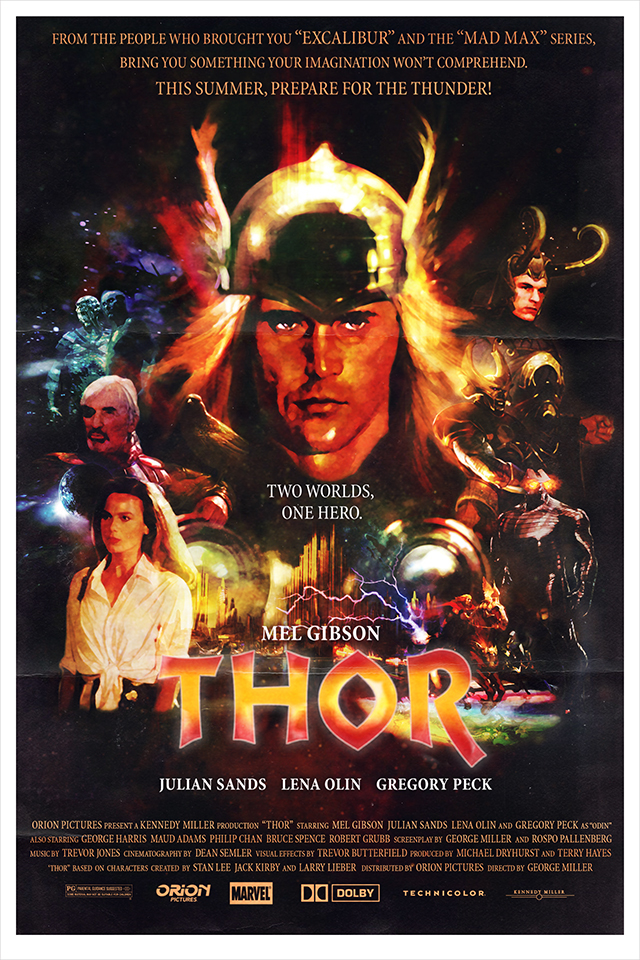
"Thor" (1985), directed by George Miller; starring Mel Gibson, Julian Sands, Lena Olin and Gregory Peck. Having wrapped up post-production on Mad Max: Beyond Thunderdome, Miller passed along a script to Gibson about the mighty god of thunder. Knowing this could be a hit, the two teamed up again for another franchise.

"The Dark World" (1987), directed by George Miller; starring Mel Gibson, Julian Sands, Lena Olin, George Harris, David Warner and Gregory Peck. After striking gold with the first Thor and even more Marvel movies being made in the surrounding years, the studios green-lit a sequel to Thor, letting Miller and Gibson take on bigger, out-of-this-world challenges.
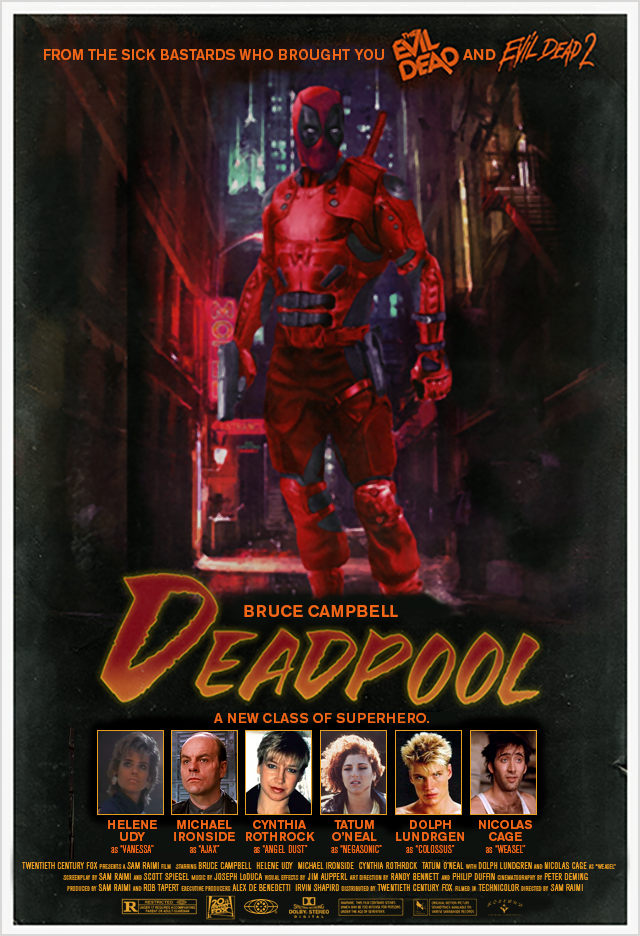
"Deadpool" (1988), directed by Sam Raimi, starring Bruce Campbell, Helene Udy, Michael Ironside, Cynthia Rothrock, Tatum O'Neal, Dolph Lundgren and Nicolas Cage. Raimi and Campbell knew they wanted to do something together again but not in the Evil Dead world. "Deadpool" was the perfect fit for them; plenty of gory action, non-stop comedic dialogue and overall self-awareness of what they were doing within the film.
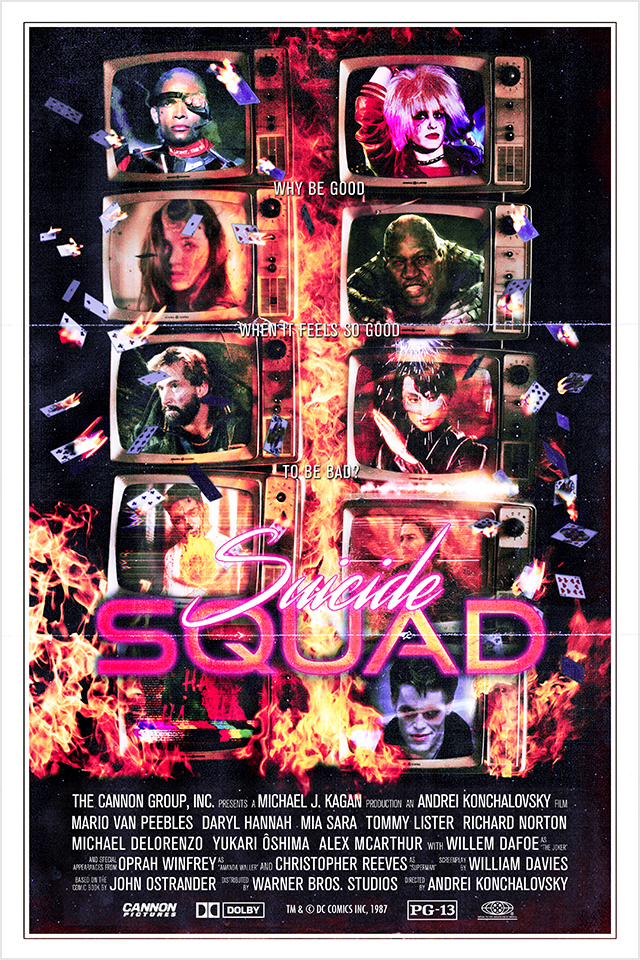
"Suicide Squad" (1987), directed by Andrei Konchalovsky; starring Mario Van Peebles, Daryl Hannah, Mia Sara, Tommy Lister, Richard Norton, Michael Delorenzo, Yukari Oshima, Alex McArthur, Willem Dafoe, Oprah Winfrey and Christopher Reeves. DC Comics knew they had to get their feet in the water, now with so many Marvel movies popping up. It had been years since a Superman movie was released, so this was the middle ground: Suicide Squad. They could get a wave of B-level characters seen on the screen, have a Superman appearance (this would lead the way for "Superman IV: The Quest for Peace"), and begin a buzz going.
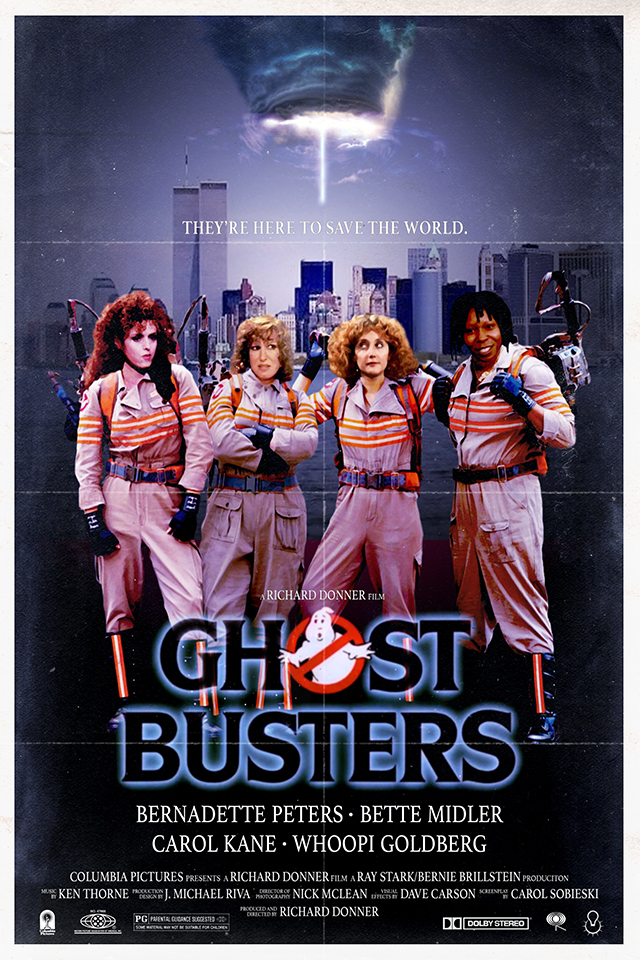
"Ghostbusters" (1984), directed by Richard Donner; starring Bernadette Peters, Bette Midler, Carol Kane and Whoopi Goldberg. Having funding fall through with the original take of the Ghostbusters, to be directed by Ivan Reitman, the studio sat on it for a bit and then made some renditions and presenting it to Richard Donner who then gave it to Carol Sobieski for some re-writes. Out came a blockbuster hit: Peters, Midler, Kane and Goldberg starred in a now comedy cult classic.
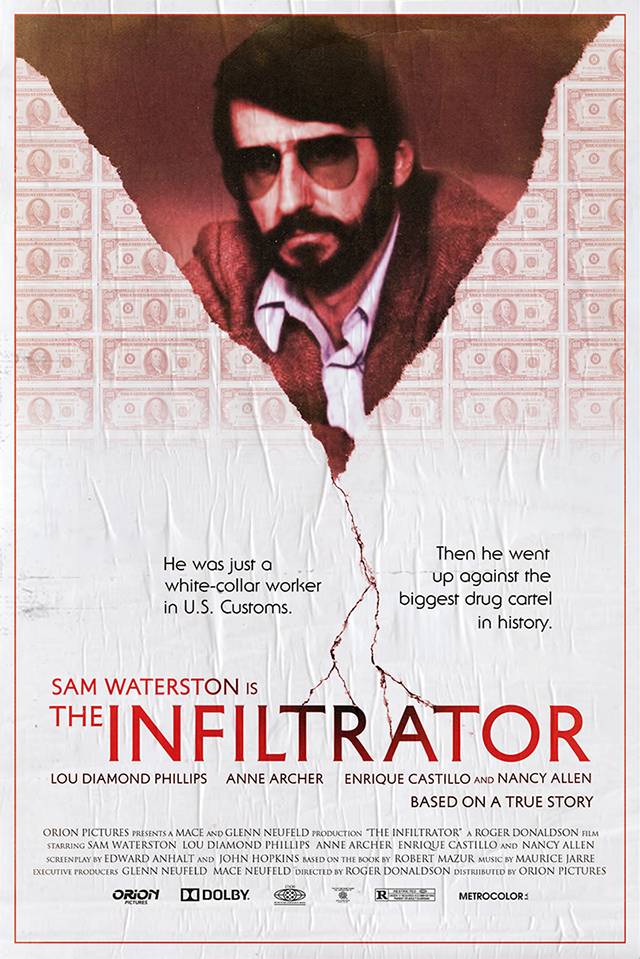
"The Infiltrator" (1986), directed by Roger Donaldson; starring Sam Waterston, Lou Diamond Phillips, Anne Archer, Enrique Castillo and Nancy Allen. When news got out about the undercover work of Robert Mazur and how he helped take down Pablo Escobar's money-laundering organization, Hollywood knew they had a winner in their hands. Giving the title role to an actor that was usually seen as a supporting character was a gamble, but with Waterston as Mazur paved the way to rave reviews and decent box office success.
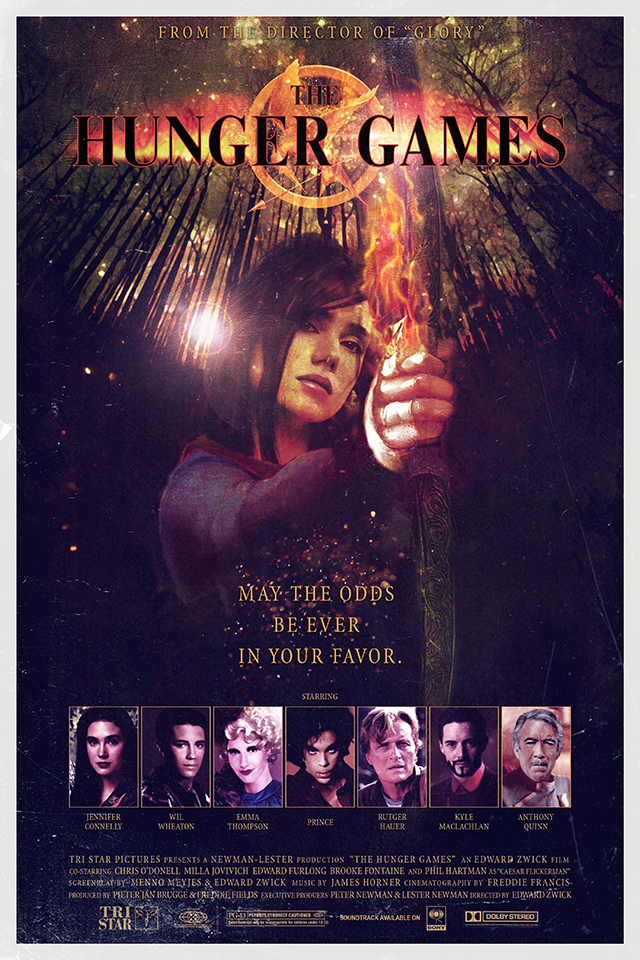
"The Hunger Games" (1989), directed by Edward Zwick; starring Jennifer Connelly, Wil Wheaton, Emma Thompson, Prince, Rutger Hauer, Kyle MacLachlan and Anthony Quinn. What seemed like a gamble at the time, Zwick, coming from his academy award winning film "Glory," and taking on a dystopian story that was geared for young adults ended up becoming the hit for the early spring of 1989. Many people flocked to theaters for the Prince cameo alone.
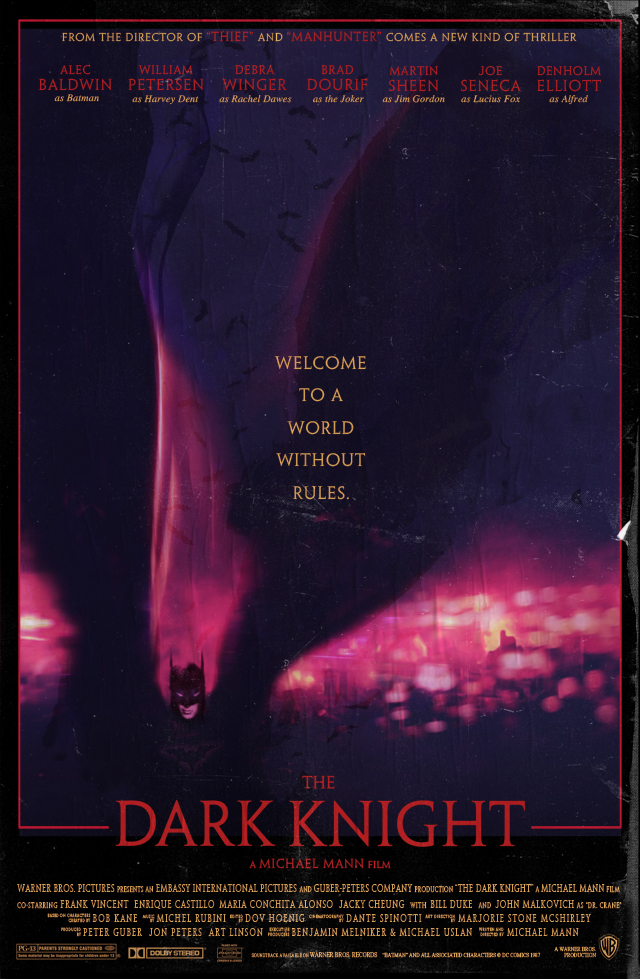
"The Dark Knight" (1988), directed by Michael Mann; starring Alec Baldwin, William Petersen, Debra Winger, Brad Dourif, Martin Sheen, Joe Seneca and Denholm Elliott. In the early 80s, CBS premiered a TV original movie titled "Batman Begins," which was a more serious take on Batman, especially viewing how he came to be; this served as a departure from the campy Adam West Batman that the world was so used to. Having the CBS movie not really gone anywhere, Warner Brothers decided to invest in that concept: the darker, more serious tone of Batman, and make a spiritual sequel titled "The Dark Knight." Michael Mann, showing what he can do with gritty crime stories and thrillers was hired to tell this tale.
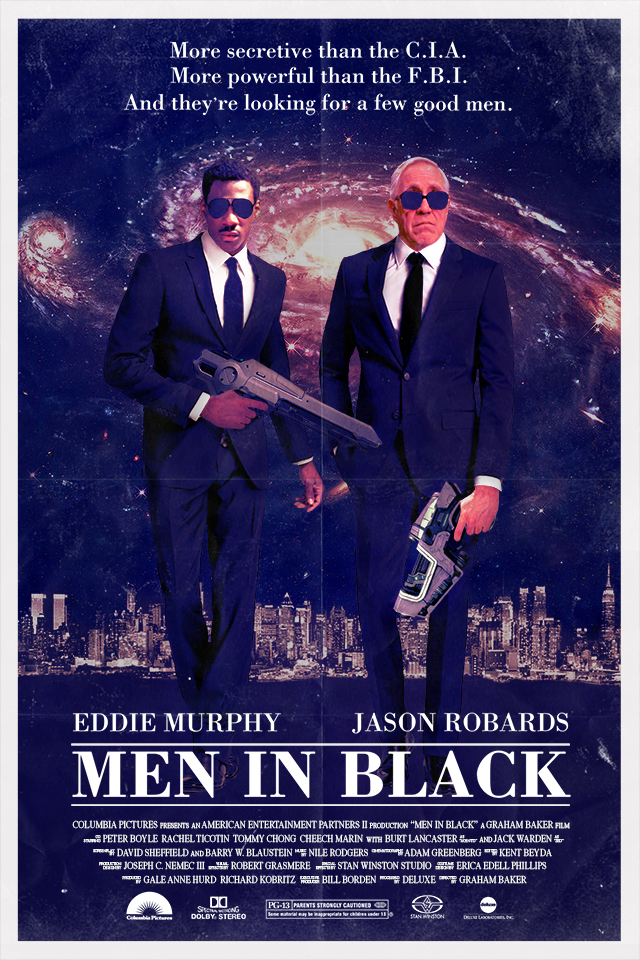
"Men in Black" (1989), directed by Graham Baker; starring Eddie Murphy, Jason Robards, Peter Boyle, Rachel Ticotin, Tommy Chong, Cheech Marin, Burt Lancaster and Jack Warden. This summer box office success was a shoe-in guarantee; Murphy delivering a science fiction action comedy that spawned two more sequels seen in the 90s.
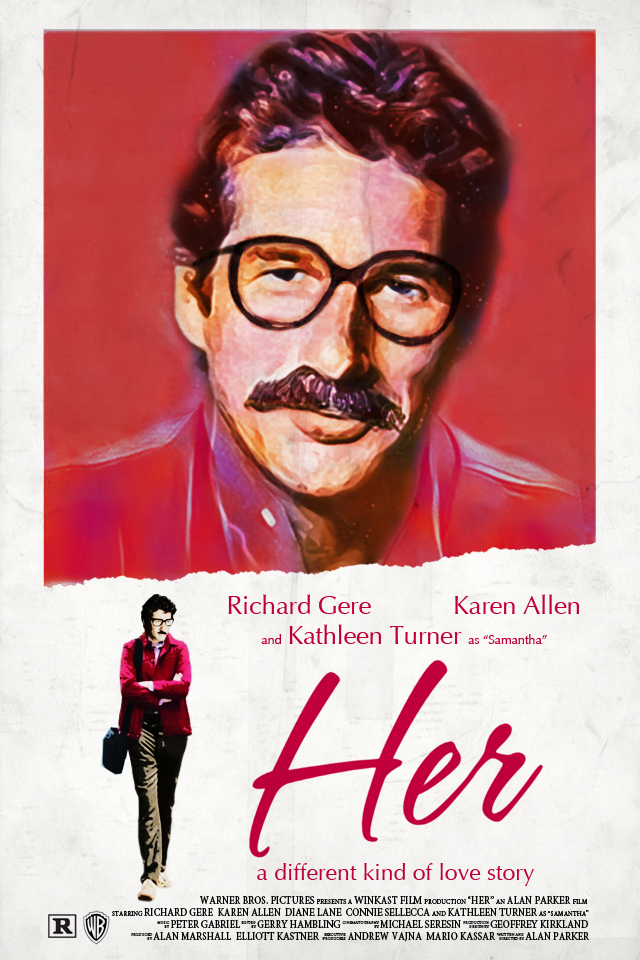
"Her" (1989), directed by Alan Parker; starring Richard Gere, Karen Allen and Kathleen Turner. What started as an experimental concept (near future America where everyone has relationships with their computers) soon transformed into a touching love story; Parker knew he wanted to make this film, especially after having made such intense films with "Angel Heart" and "Mississippi Burning."


